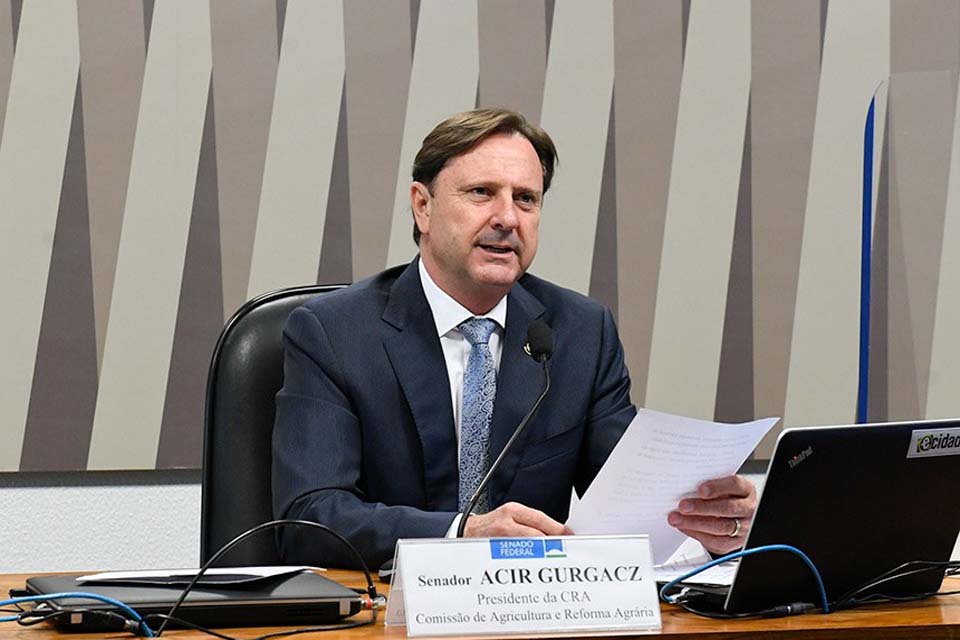Roque de Sá / Senate Agency
The bill dealing with the donation of food by supermarkets and similar institutions and the law regulating the National Science, Technology and Innovation System for Agriculture (SNPA) is ready for analysis by the Commission on Agriculture and Agrarian Reform (CRA). The reports were read on Friday (12) and will be discussed and voted on at the next consultative meeting of the university.
PL 2.874/2019, by authorized Senator Ciro Nogueira (PP-PI) – the current Minister of the Civic House – aims to avoid food waste. For this purpose, it establishes rules for large supermarkets to be able to donate food to charitable social assistance entities.
The rapporteur, Senator Sergio Pettico (PSD-AC), provided a favorable opinion in alternative form. Among the major changes is the change in the commitment to donate food, stipulated in the original project.
Petecão included the establishment of the National Food Loss and Waste Policy, which stipulates concepts, principles, objectives and tools for food donation, as well as dealing with financial and health issues.
agricultural research
Also read was Senator Acir Gurgacz’s (PDT-RO) report to PL 6.417/2019, which regulates the SNPA and creates a collaborative network of information on agricultural research. The project belongs to Senators Styvenson Valentim (Podemos-RN), Luis Carlos Heinze (PP-RS) and Soraya Thronicke (PSL-MS).
Gurgacz stated that the development of agriculture and its importance in Brazilian socio-economic development, as well as the historical role of agricultural research in the development of this sector, is undeniable.
Much of this development is due to the incorporation of innovations produced by the public sector (eg Embrapa, universities and government research institutions) and private research institutions.
The course made two amendments. Among them, a phrase that gives a new formulation of the concept of agricultural research, which is defined as “that which develops scientific and technological knowledge, in all fields of science, according to an official classification, with a view to developing the rural environment and social and economic activities carried out in it”.
Approval on Friday of the TRA’s participation in the course of lectures and discussions to be held in Poritis (RO) on December 6 to discuss the implementation of projects aimed at regional development, new tools for regulating land ownership, and studies aimed at completing BR 421 and BR 364 transcription processes.
COP26
At the start of the meeting, Gorgach, who chairs the CRA, spoke about the Federal Senate delegation’s participation in the United Nations Conference on Climate Change (COP26), which ends Friday (12) in Glasgow, Scotland.
According to the congressman, who was at the meeting, at a meeting with world leaders, the senators were able to present the results that Brazil has already achieved in reducing greenhouse gas emissions and in other environmental goals to combat climate change.
The main lesson I learned from COP26 is that Brazil needs to exercise its role as an environmental force. No country has greater environmental potential than ours, and we need to take the lead in that. It is Brazil that needs to move forward, and take on this role as a leader on this planet.
The senator emphasized that developed countries, which have increased their greenhouse gas emissions since the Industrial Revolution, now need to cooperate with developing countries, on a compensation basis.
The $100 billion target to help developing countries needs to be regulated.

“Hardcore beer fanatic. Falls down a lot. Professional coffee fan. Music ninja.”






More Stories
The law allows children and adolescents to visit parents in the hospital.
Scientists pave the way for the emergence of a new element in the periodic table | World and Science
Can dengue cause hair loss? Expert explains how the disease affects hair